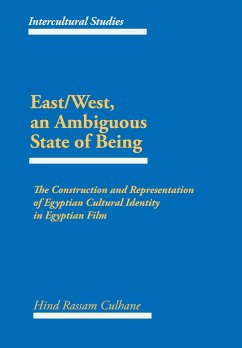
Representations of Palestine in Egyptian Cinema
Politics of (In)visibility
Herausgegeben: Ginsberg, Terri; Lippard, Chris
Versandkostenfrei!
Versandfertig in 6-10 Tagen
80,95 €
inkl. MwSt.
Weitere Ausgaben:

PAYBACK Punkte
0 °P sammeln!
Representations of Palestine in Egyptian Cinema: Politics of (In)visibility traces how Egyptian cinema has represented Palestine across three paradigmatic moments in modern Egyptian history: in the years around the 1952 Revolution, which saw Egypt's transition from monarchy to republic; in the wake of the 1967 Defeat, which signaled the end of Nasser's pan-Arabist project; and around the turn of the twenty-first century, at which point Egypt had not only normalized relations with Israel but integrated into the neoliberal capitalist economy. Integrating textual analysis with politico-historical...
Representations of Palestine in Egyptian Cinema: Politics of (In)visibility traces how Egyptian cinema has represented Palestine across three paradigmatic moments in modern Egyptian history: in the years around the 1952 Revolution, which saw Egypt's transition from monarchy to republic; in the wake of the 1967 Defeat, which signaled the end of Nasser's pan-Arabist project; and around the turn of the twenty-first century, at which point Egypt had not only normalized relations with Israel but integrated into the neoliberal capitalist economy. Integrating textual analysis with politico-historical contextualization, the book investigates Egypt's popular commitment and changing foreign policy toward the Palestinian issue, arguing that varied allegorical figurations of Palestine in Egyptian cinema appear as critical reactions to the political status quo. To this end, the book's chapters analyze, respectively, generic conventions of melodrama, social realism, and transnational cinema, all in relation to their conditions of production-commercial, state-sponsored, and transnationally funded. The book offers a critical reconsideration of an important but largely neglected body of films on a struggle which persists until today.













